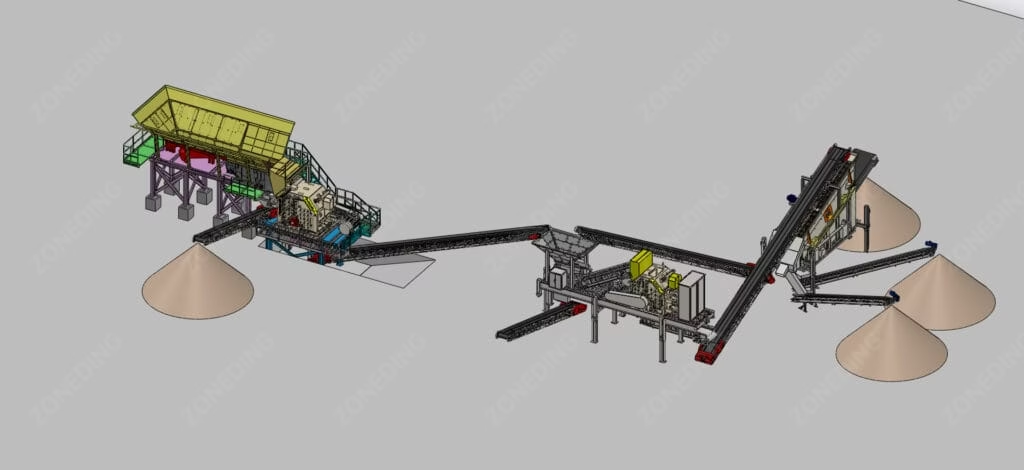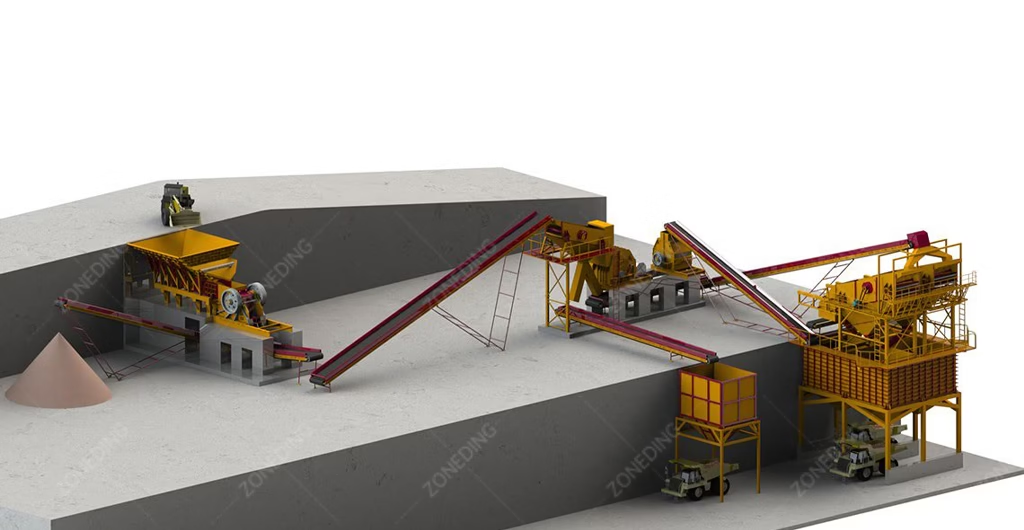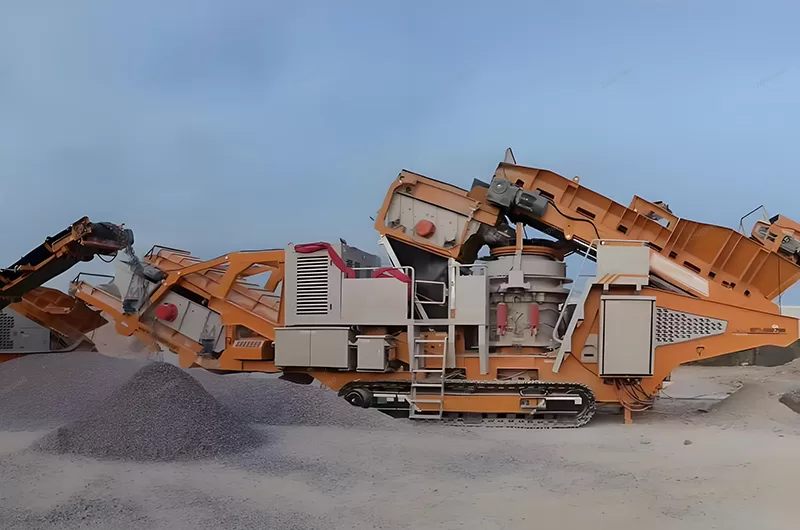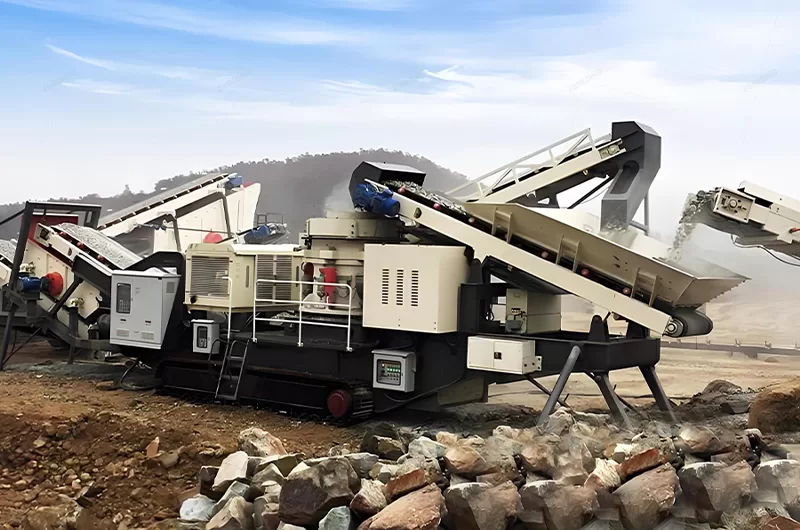全站搜索
Search the entire website
Search the entire website
Are you watching your project’s profits get hauled away in dump trucks? For construction companies, quarry owners, and mining operators, the cost of managing rock can be a huge financial burden. You might be paying a fortune to dispose of excavated rock, or spending even more to buy and transport processed aggregate back to your job site. It can feel like you’re losing on both ends.
But what if that “waste” rock could be turned into a valuable asset? What if you could produce your own high-quality aggregate, right where you need it, and take control of your supply chain? This is where a stone crushing machine becomes a game-changer. It’s not just a piece of equipment; it’s an investment in efficiency, profitability, and independence.
As a manufacturer of crushing equipment for over two decades, we’ve helped hundreds of clients make this exact transition. Here are the five key signs that a stone crusher is the right move for your operation.
This is the most obvious and painful sign. Your project generates a large volume of rock from excavation or demolition, and you have to pay to make it disappear. That cost has two parts: hauling and disposal.

You are paying for trucking. You pay for the driver, the fuel, and the wear and tear on the trucks to move tons of heavy rock off your site. This cost adds up quickly, especially if the nearest landfill or disposal site is far away.
You are paying tipping fees. Landfills and quarries charge a fee for every ton of material you dump. These fees are constantly rising due to environmental regulations and decreasing landfill space. You are paying a premium to throw away a potentially valuable resource. An on-site stone crushing machine completely changes this equation. Instead of a major cost center, your excavated rock becomes a source of revenue.
Imagine the rock you excavate is a liability on your balance sheet. Now, picture a ZONEDING jaw crusher on your site. That same rock is fed into the crusher and transformed into valuable graded aggregate. You have now eliminated 100% of your hauling and disposal costs. Better yet, you have created a product you can use in your own project or sell to others.
| Without a Crusher | With an On-Site Crusher |
|---|---|
| Pay for truck and fuel to haul rock away. | Eliminated. |
| Pay tipping fees per ton at a landfill. | Eliminated. |
| Lose a potentially valuable resource. | Create a saleable product. |
| Result: Significant Financial Loss | Result: Significant Financial Gain |
If you’re not crushing your own rock, you’re buying it from someone else. This puts you at the mercy of their pricing, their schedule, and their quality control.

You face several problems with this model.
Owning a crushing machine gives you control. You can produce aggregate to your exact specifications, right when you need it. You are no longer dependent on an outside supplier. ZONEDING can design a complete crushing and screening plant that makes you completely self-sufficient.
Take a close look at the rock you are excavating. Is it just dirt and shale, or is it high-quality granite, limestone, or basalt? Many companies make the mistake of treating all excavated rock as “waste.”
This is like throwing away money. High-quality rock is the raw material for premium construction aggregate. With the right equipment, that blasted rock can be turned into:
A primary jaw crusher can handle the large blasted rock, and a secondary cone crusher can shape it into the uniform, cubical particles that high-spec concrete and asphalt require. You are not just getting rid of waste; you are manufacturing a high-value product from a resource you already have on-site.
For many contractors, work is not in one fixed location. You might be building a 50-kilometer road, working on multiple construction sites across a city, or operating several small quarries. A traditional stationary crushing plant is useless in these situations. The cost and time to dismantle, move, and reassemble it are prohibitive.


This is why mobile crushers were invented. These are complete crushing plants built on a tracked or wheeled chassis.
ZONEDING is a specialist in mobile crushing stations. We offer powerful mobile jaw crushers, cone crushers, and screens that can be set up and running in a matter of hours, not weeks. This flexibility means you can take your crushing capability wherever the work is.
Around the world, regulations on landfilling construction and demolition (C&D) waste are becoming stricter. Many government contracts now require or provide incentives for the recycling of materials like concrete and asphalt.
A stone crushing machine is a powerful recycling tool.
Using a crusher for recycling not only helps you comply with environmental laws but also opens up new business opportunities and enhances your company’s green credentials.
Client: A construction contractor in the Philippines.
Project: Building a 30km mountain road in a remote area.
Problem: The cost to purchase and transport aggregate from the nearest major city was making the project unprofitable. The project site had large quantities of high-quality blasted basalt rock.
Solution: ZONEDING supplied a complete mobile crushing and screening solution, including:
Result: The client produced all the aggregate needed for the road base and concrete on-site. They eliminated over $500,000 in aggregate purchase and transportation costs. They finished the project ahead of schedule and were able to sell the surplus aggregate to smaller local builders, creating an additional revenue stream.
If you see yourself in these five signs, the next step is to choose the right equipment. Here are the key questions to ask:
If you’re tired of wasting money on disposal fees and unreliable suppliers, it’s time to consider a stone crushing machine. It is a strategic investment that gives you control over your costs, timeline, and quality. It turns a liability into a profitable asset and makes your operation more efficient and independent.
At ZONEDING, we don’t just sell equipment. We provide complete solutions. As a factory-direct manufacturer, we can offer you a more competitive price on a machine that is custom-engineered for your specific rock and your unique business goals. Our equipment is running in over 120 countries, proving its reliability in the toughest conditions.
Contact our engineers today for a free consultation. Let’s analyze your project and show you exactly how much you can save by crushing on-site.
From panning to separation, get ultimate guide on how to process black sand for gold. Learn tips to improve yield and identify gold-rich black sand deposits.
View detailsThis essential guide clarifies the 7 most common types, their pros, cons, and ideal uses to help you make an informed decision for your processing operations.
View detailsNew to construction materials? This guide breaks down 5 basic types of sand, from Pit Sand to M-Sand, explaining their properties in easy-to-understand terms.
View detailsLearn the process of buying Crushers from China, from finding reliable suppliers to managing customs. Your all-in-one guide for sucessful imports.
View details